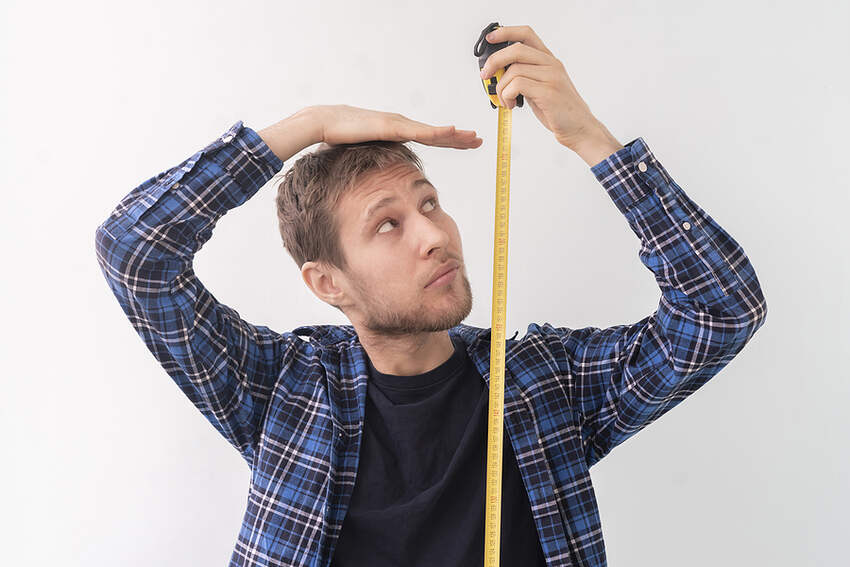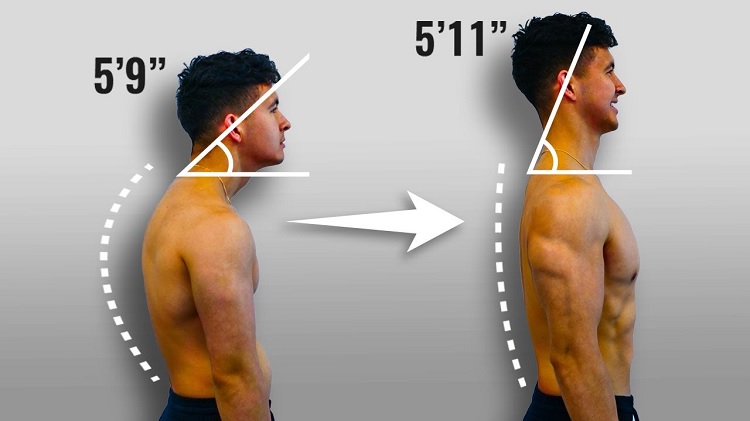Are you curious to know if shedding those extra pounds can actually make you taller? It’s a question that has been buzzing around, especially among the youth. Well, you’ve come to the right place to find the answer. As an experienced fitness trainer, I’m here to shed some light on this intriguing topic. So, let’s explore whether losing weight can truly make you taller.
Contents
When you lose weight, do you get taller?

When it comes to the question of whether losing weight can make you taller, it’s important to understand the underlying factors that determine your height. While losing weight won’t actually increase your height, it can create the illusion of added height. Let’s discuss the science behind this phenomenon.
Genetics, nutrition, and hormones: Your height is primarily determined by these three factors. Genetics play a major role in determining your height potential, as certain genes can influence how tall you grow. Nutrition is also crucial, as a well-balanced diet during childhood and adolescence provides the necessary nutrients for optimal growth. Hormones, such as human growth hormone (HGH), also play a role in regulating growth during puberty.
Closed growth plates: Once your growth plates have closed, which typically occurs during late adolescence or early adulthood, your height will no longer increase. This means that after a certain age, losing weight will not lead to further growth in height. The closure of growth plates is influenced by genetic and hormonal factors.
Relieving pressure on the spine: Although losing weight won’t make you taller, it can have a positive impact on your posture, making you appear taller. Excess weight puts pressure on your spine, compressing the vertebrae and causing you to slouch or have a rounded back. Losing weight can alleviate this pressure, allowing your spine to decompress and your posture to improve. By standing up straighter, you may appear taller.
How Does Weight Loss Affect Height?

As you embark on your weight loss journey, you might be curious about how it can potentially affect your height. While losing weight won’t actually make you taller in the sense of increasing your height genetically, it can have some interesting effects on your overall appearance and posture. Here’s how weight loss can impact your height:
- Improved Posture: One of the key ways weight loss can affect your height is through improved posture. When you carry excess weight, it puts additional strain on your spine and vertebrae, causing you to slouch or hunch over. However, as you shed pounds and strengthen your muscles, you may find that your posture naturally improves. This can make you appear taller and more confident.
- Relief of Spinal Pressure: Another way weight loss can give the illusion of added height is by relieving pressure on your spine. Excess weight can compress the spinal discs, making you appear shorter than you actually are. By losing weight, you reduce the load on your spine, allowing the discs to decompress and regain their natural height. This can contribute to a taller overall appearance.
How to Lose Weight and Get Taller?

Losing weight and improving your overall posture can make you appear taller and more confident. While losing weight alone cannot increase your actual height, it can help you maximize your potential height by ensuring good posture and spine alignment. Here are some tips to lose weight effectively and improve your posture:
- Maintain a balanced and nutritious diet: Eating a healthy diet rich in fruits, vegetables, lean proteins, and whole grains can aid in weight loss and promote overall well-being. Avoid excessive consumption of processed foods, sugary drinks, and unhealthy snacks. Remember, a well-nourished body is better equipped to achieve and maintain a healthy weight.
- Engage in regular physical activity: Incorporating regular exercise into your daily routine is essential for weight loss and improving posture. Focus on exercises that strengthen your core, back, and leg muscles. These exercises will help improve posture, balance, and stability.
- Cardiovascular exercises: Include cardio exercises like running, cycling, swimming, or aerobics in your fitness routine. These activities increase your heart rate and burn calories, contributing to weight loss and improved cardiovascular health.
- Practice good posture: Stand up straight with your shoulders back and your head held high. Be conscious of your posture throughout the day and make efforts to correct any slouching or slumping. This will not only make you appear taller but also support a healthy spine.
By adopting a healthy lifestyle, including regular exercise, a nutritious diet, and good posture habits, you can achieve weight loss and stand taller.
Frequently Asked Questions:
Can stretching make you taller?
Stretching may not physically make you taller, but it can improve your posture and make you appear taller. By elongating and loosening your muscles, stretching helps with spine alignment and promotes good posture, which can create the illusion of increased height.
Do you get skinnier when you get taller?
In most cases, individuals tend to look skinnier when they experience a growth spurt and become taller. As the body grows rapidly, the baby fat stored in the body stretches out, giving the appearance of a leaner physique. However, it is important to note that fat distribution and body composition can vary among individuals.
At what age do you stop growing?
Most individuals reach their peak height around the age of 16. Although some may experience growth even into their twenties, the significant increase in height usually occurs during puberty. After the ages of 18 to 20, it is unlikely to see significant growth in height, but other physical developments may continue.

Santhan, known to many as Linda, combines her personal training expertise with exceptional motivational coaching skills. Her articles are not just informative but also incredibly inspiring, encouraging readers to take action and pursue their fitness goals. Linda’s unique approach to writing integrates practical fitness guidance with motivational elements, making her content both useful and uplifting.
